Marriage Counseling:
What you need
to know
It is our mission to help you with all you need to know about marriage counselling.
The right advice when you need help with your marriage can literally make or break your relationship. Marriage counseling might be one of the most important things that happen to you.
Here you can find out what it is, what it’s not, who needs marriage counseling, why you need it, whether it works, what works best, what to look for, different types, different methods, different tools, the costs, what you can get for free and much more.
How to use this
page
to find what you need:
Scan this page's headlines or just scroll down for quick answers to your marriage counseling questions.
Each of the headlines are bold, in large font and self-explanatory: Find the ones that match your questions and you'll have the answers! You can skip the sections you don’t need.
This will guide you to make marriage counseling decisions that's best for you and your partner.
If you want more in-depth answers and info please read on.
How to use this site
to find what you need:
Click here or on FAQ at the top or on the left for a more comprehensive list of questions AND answers. On that page you will find more in-depth info.
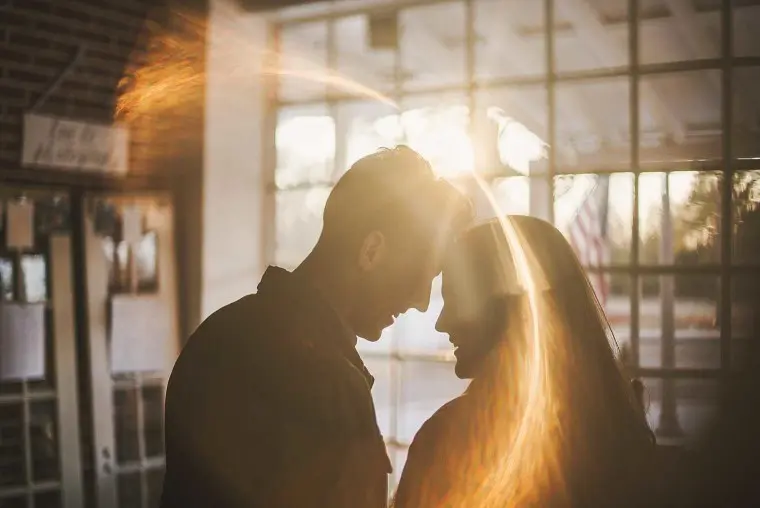 Marriage counseling has helped millions of marriages all aover the world.
Marriage counseling has helped millions of marriages all aover the world.Not sure about marriage counseling?
Ready for it or just
looking?
(Skip this if you don’t want the short speech! 😉)
Jump right ahead to the next heading to get some ready-made info!)
Are you unsure about taking the leap to get marriage counseling? We understand. We have been there (more about us later). It is a decision that can be both scary and overwhelming.
Often the first step is having the courage to admit something needs to change. It’s a very brave step. A VITAL step. And also the first step towards reconnection, healing and growth.
- Maybe you are ready to take the leap and just want to make sure or find out more?
- Maybe you have tried it and it didn’t work. You want to try again and be better prepared this time?
- Maybe you are here for a friend, a family member or loved one? You want to help them find out more about marriage counselling?
Have a look around then. You can start the journey to your new relationship adventure. The choice is yours.
 Marriage counseling can transform your relationship into an adventure of discovery
Marriage counseling can transform your relationship into an adventure of discoveryWhy listen to us?
Read more about us here including our qualifications, degrees, certifications and accreditation.
You might have already stumbled onto other sites when searching for info about marriage counselling. Here is what's different about this space:
- it's unique and highly personal; we’ve been there, right where you are now; we know the pitfalls and shortcuts and we want to guide you to get the right info as quickly and painlessly as possible
- it's managed by us, a married couple who happens to be qualified, registered and experienced marriage counselors
- as a couple we've experienced all kinds of marriage counseling (the good, the bad and the ugly!). We used all the "good" and it saved our marriage, We want the same for you!
- it was not created and is not maintained by a big company or organization who doesn't care about you
- it's solely focused on marriage counseling. Find all the info you need in one space
- it's a community, and NOT just a web site – You are NOT alone; many other couples are going through the same thing
Lets break that down: We are real. No BS or psychobabble or pages and pages of impersonal AI-generated info . When we use psychobabble we will explain! ;))
We will be honest. Sometimes brutally so.
We will be kind. It is very important for this to work.
We will be keeping it real. Authentic. No fluff. Straight-up. Right at you.
Here's the first straight-up piece of advice: Marriage counseling is NOT easy. It will take hard work. Marriage counselling works. But ONLY if you work it.
Marriage counseling
What is it?
So before you decide to go for marriage counseling make sure you know exactly what it is.
Counseling is defined as “professional guidance in resolving personal conflicts and emotional problems”.
It is therefore safe to say that a marriage counselor aims to resolve conflicts and problems in marriage by professionally guiding you and/or your partner.
Marriage counselling is also known as couples therapy or relationship counselling.
 A marriage counselor acts as a guide or a coach to help you resolve your relationship issues
A marriage counselor acts as a guide or a coach to help you resolve your relationship issuesWhat's the difference between counseling and therapy?
There is a small yet important difference between marriage counselling and marriage therapy. In general, counseling is more short term, while therapy is more long-term.
Counseling also focuses on current issues and problems while therapy might also explore an individual’s history and upbringing.
Does it matter? Not really. Most marriage counselors also use techniques and tools that explore the past and each marriage counsellor will assess each couple’s unique situation before they decide which methods to apply.
In our experience issues are resolved and understood much better when the past is explored as well.
When our marriage was in trouble we tried different methods and tools. The tools that got us to an awesome place were the ones that also explored our pasts, where we grew up and the choices we made then and since.
That brings us to a very important point:
Marriage counselling
What it is NOT!
This is important!
Many couples try marriage counselling, then get divorced or seperate and they inevitably believe marriage counselling doesn’t work.
We agree…IN PART!
We also disagree!
If marriage counselling does not work for you it does not mean it won’t work for everybody else. It might also mean that you did not do the work required for it to work! And the work required is HARD work!
Check the definition we provided above about marriage counselling again. The word “guidance” is an important clue.
A professional counsellor or therapist can only GUIDE you. YOU have to DO the work and put in in the hard yards!
Marriage counseling can help YOU get better BUT...
YOU will have to work to get better
If you want to get better at anything (playing the guitar, losing weight, gaining a promotion etc.) you need to put in the work. Lets take exercise/fitness/diet as an example.
You might go to the gym, start jogging, start eating healthily, maybe even get a coach to help you. If you commit to a process, a program or a plan and do the hard work, chances are very good that you WILL get better.
Think of any athlete, successful dieter or fitness fanatic. They did not get to where they are without putting in a lot of hard work.
Marriage counseling requires the same from you. Don't expect any results or to solve your issues if you are not prepared to work REAL hard.
If your diet or exercise don't work you might blame the coach, your shoes, your schedule, the gym, the food, the time you need to put in, the effort etc.etc. Instead of looking at yourself.
Maybe you should blame yourself for not DOING THE WORK!
The same applies to marriage counseling.
So know this: marriage counseling is NOT a magic wand or a quick fix. If you want it to work you need to DO the work. YOU need to make it work.
 Like anything else you want to get better at you will only get better with marriage counseling if you put in the hard work.
Like anything else you want to get better at you will only get better with marriage counseling if you put in the hard work.Does marriage counseling work?
One thing you probably want to know about marriage counselling is if it works.
It does. Multiple studies show this to be true. One study found that marriage counselling has a positive impact on 70% to 80% of couples. (https://pubmed.ncbi.nlm.nih.gov/36175119/)
Research done by the American Association of Marriage and Family Therapy (AAMFT) also found that:
- 98% of couples who have tried couples counseling have rated it either “excellent” or “good”
- 90% say their emotional health has improved
- Two thirds have reported an improvement in their physical health.
- Couples who got professional help after infidelity reported higher relationship satisfaction than those couples who didn’t
Those are the facts.
In our experience it comes down to you. If you are willing to learn, use and apply new tools it will work.
Let’s get REAL: What it will take from YOU to work?
The stats above sound great. Let’s be honest though: Like any other any process it takes commitment. No one has ever changed or got better at something without it!
Add willingness, intention, and a desire to learn AND (VERY IMPORTANTLY!) use new relationship tools.
Then do the work.
That’s the only way it will work for you.
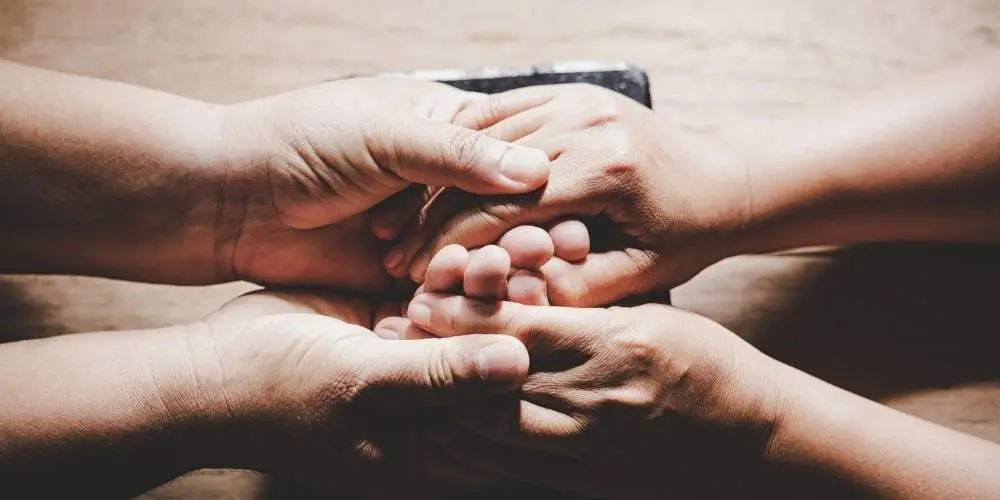 The more you commit to marriage counseling the better results you will get
The more you commit to marriage counseling the better results you will getIs marriage counseling confidential?
Yes. Always remember that whatever is said between you (as an individual or couple), and your marriage counselor is strictly confidential.
All marriage counselors are bound by the ethical standards and guidelines of their profession. This means, among other things, that a marriage counselor should treat all conversations and information as highly confidential.
A marriage counselor can ask for confidential information and will obviously need as much information as possible in order to help you resolve your issues. Just know that it always remains your choice to choose what you share.
When do you need marriage counseling?
These are some the signs that are easy to ignore yet are clear red flags telling you that you need marriage counselling:
- Lack of communication
- Lack of intimacy
- A lack of connection
- A lack of feeling safe
- No common goals and goal setting
- Unresolved fights
- Conflict themes that keep repeating
- Distancing
- Explosive and angry outbursts
- Constant blaming, shaming and criticizing
- A feeling of dissatisfaction
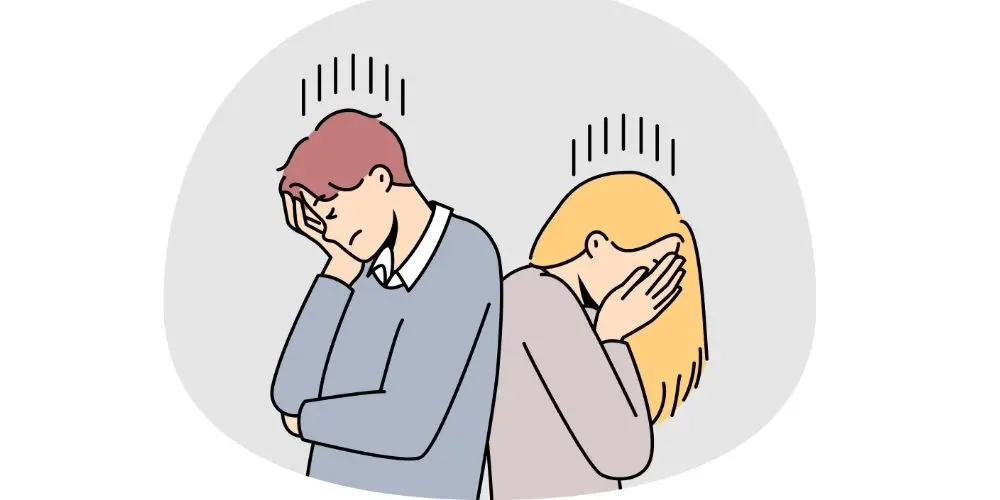 Distancing and constant conflict should not be ignored
Distancing and constant conflict should not be ignoredDealbreakers where marriage counselling can also be a lifesaver
There are also the serious events which are much more obvious signs. Many couples get to this danger stage after ignoring the red flags for too long. And sadly many couples believe when these "dealbreakers" happen it is too late. These include:
- Affairs
- Addictions
- Deceit, deception and lies
- Total communication breakdown
- Serious financial difficulties
- Divorce or separation (living apart)
- Depression, anxiety and other mental health issues
- Unexpected life events and trauma (accident, loss of a loved one (child/family member/close friend)
It is NOT too late. If you read our story you will see how we are building and living our marriage adventure after suffering some of these setbacks. So are many other couples!
PLEASE NOTE: Abuse and other life-threatening
conditions
IMPORTANT: While most couples can benefit from marriage counselling it is not the first step recommended for people in abusive relationships especially in relationships where your life might be in danger. If you, or someone you love is suffering from any form of physical abuse, seek individual therapy and help immediately.
Why marriage counselling can help
We have all felt this: You fall in love and then you stay in love. Your relationship grows. You decide to get married. You live the dream of happily-ever-after...
That’s awesome isn’t it?
And yet, for so many of us it gets VERY difficult. The dream becomes a nightmare or at least starts fading. We learn it all comes with challenges. Some small, some big, some challenges that simply feel impossible to overcome.
Having kids, money troubles, career changes, personal stuff, intimacy issues, a spark lost, different outlooks, life just happening…
Just to name a few.
Some people give up. Some try harder. Some, like you, don’t want to give up on the dream and they turn to marriage counselling.
We have been there, done that and have the scars to prove it😉. And we want to help you navigate what might feel like a nightmare and turn it into an adventure.
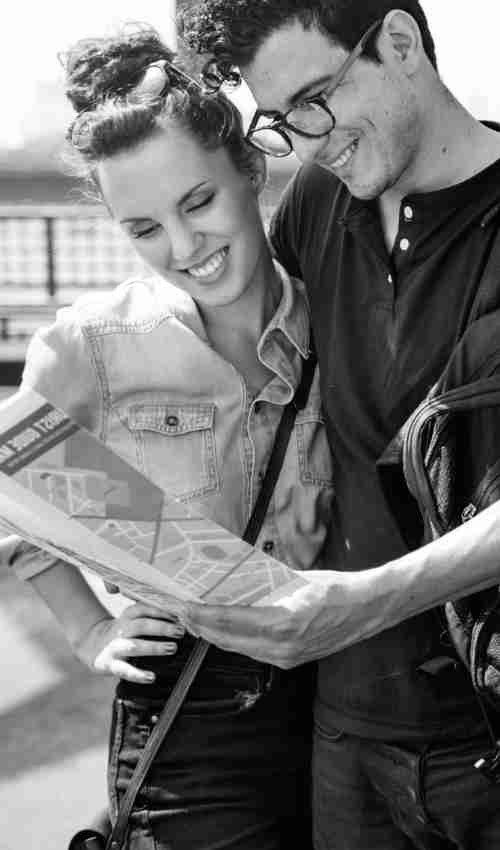 Want to transform your marriage into an exciting relationship journey?
Want to transform your marriage into an exciting relationship journey?Quick (but true) facts: Want to be just another stat?
Here’s a FACT: Almost 50% marriages worldwide end up in divorce (indications are that the figure has risen after the COVID-19 pandemic)
Of those that make it many simply make do.
The cope.
They survive.
They get along.
They stay together for the kids.
They stay together because of finances.
They believe this is as good as it gets.
Here’s another FACT: Some couples find out about marriage counselling. They get tools and guides to help them. They resolve their issues. They talk. They learn. They reconnect. They heal. They grow. They build and live an awesome marriage adventure.
It’s your choice.
Who needs marriage counseling?
Almost all couples can benefit from this meaningful journey. Whether the relationship is dealing with small issues (which tend to lead to bigger ones the more they repeat!) or serious conflicts and disagreements, marriage counselling can help resolve these.
Above all a relationship can be stronger, healthier and based on individual growth for both individuals after marriage counseling.
Marriage
counselling works at any stage of a marriage;
- for couples who just got married recently
- for couples who have been married for a while
- even for couples who have been sharing a life for ages.
It is also very good for couples who are seriously thinking about getting married. Premarital couples benefit greatly from learning and using tools before issues get serious.
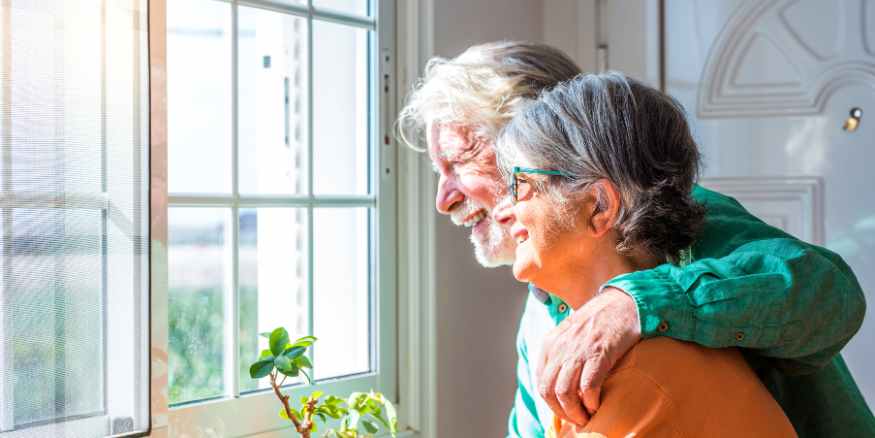 Any couple at any stage of their relationship can benefit from marriage counseling
Any couple at any stage of their relationship can benefit from marriage counselingBenefits of marriage counselling
Marriage counseling can help couples...
- reconnect
- feel safe in the relationship again
- manage disagreements and conflict differently
- reignite the spark in their relationship
- recover sexual intimacy
- learn valuable communication tools
- resolve conflict and disagreements
- recover from addiction and its effects
- learn to embrace conflict as growth
- heal after an affair/infidelity/cheating
- heal trauma
- enhance and grow their relationships
- explore and fulfil common goals
- improve communication
- resolve financial disputes
- regain and strengthen trust
- resolve disagreements about parenting
But wait, there’s more! ;) Added benefits
Research shows that couples who benefit from marriage counseling enjoy added benefits like improved physical health, happier and healthier children as well as improved ability to fulfil common family goals.
We believe that the space between a couple becomes the playground of their children. If that space is safe, connected and full of joyful aliveness your kids will thrive.
The opposite, sadly, is also true. Unhappy marriages that don’t end up in divorce are associated with other mental health issues (for the couple and the children) as well as a lack of physical wellbeing.
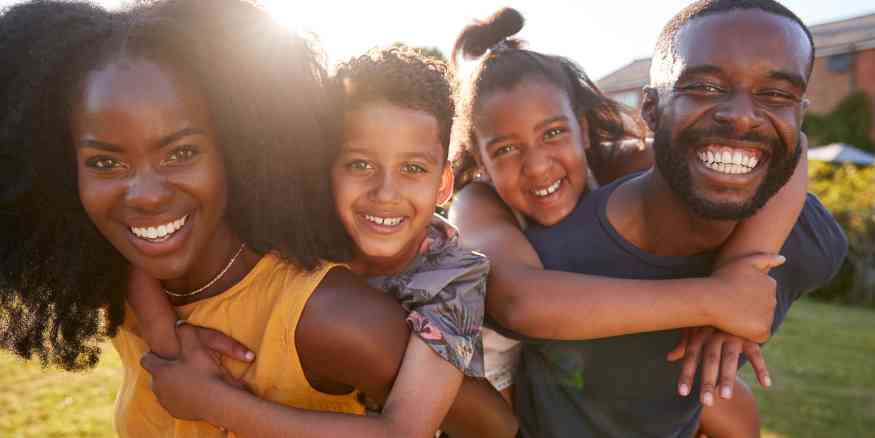 Apart from you, your kids will be the greatest benefactors of marriage counseling
Apart from you, your kids will be the greatest benefactors of marriage counselingCut the BS! Seriously!
Yes, I know. You might be thinking, feeling or even saying that out loud! Sounds too good to be true, right?!
Why do I know this? Because I was there. Where you might be now . Despondent, pessimistic, depressed, unhappy, frustrated, argumentative, hopeless, angry, sad, disappointed, negative and stressed.
We did not think our marriage would make it. In the end it did. And we have marriage counselling to thank for that.
And a lot of hard work.
And a lot of effort and persistence
And hope and mindset shifts….
What I do know is that it starts by finding out as much as you can about marriage counselling before diving in, let alone commit. It’s a big, brave and bold step. It costs money. It takes effort.
In many cases it feels like a last chance saloon. For some people it could quite literally be the last thing you try before you give up.
So no matter where you are now;
- at the point of giving up or
- desperate to resolve your conflict and issues or
- looking to improve your relationship or
- looking for some tools before you get married,
…we are here to help.
Or maybe you are curious. Maybe you just want to know more.
We have been there. We have said, thought and felt the same stuff. We looked. We searched. We did the work. We survived. And now, we thrive.
You can too.
How does marriage counseling work?
You might have seen examples of counselling or therapy sessions in a movie or a TV series. You might have even been for sessions with a psychologist or therapist.
Someone lies on a couch or sits in a comfortable chair and speaks to a psychologist (usually depicted with a clipboard and a stern look!).
Please don’t let that fool you! It’s a very stereotypical view of what happens. Yes, there is usually a couch and yes, you will be made as comfortable as possible but most marriage counselors will be (and should be!) non-judgmental and will try to make you feel safe and relaxed.
The next few sections will explain what happens, how long it takes before you can expect results and how long a single session usually takes.
 You should not feel judged at a marriage counseling session
You should not feel judged at a marriage counseling sessionWhat exactly happens in a marriage counselling session?
Marriage counseling sessions consist of you and/or your partner talking to a professional therapist/psychologist about the issues you would like to resolve.
A typical session would look like this:
- The marriage counselor will ask you questions or prompt you to discuss the issues you would like to address.
- You and/or your partner will then talk to the counselor who acts as a facilitator.
- The counselor will give feedback or ask more questions for more information
- You/the couple answer/s
- The counselor will assess the situation and give professional advice, usually in the form of tools, exercises or activities you have to perform at home before the next session
- The counselor might also help guide and help you to start using these tools during the session
- The counsellor might also guide you to talk to each other and act as facilitator
PLEASE NOTE: This is a very basic outline of what typically happens. Each session will follow its own order and might contain only some or none of the items described above. It will depend on the marriage counsellor acting as your guide.
How long does marriage counseling take?
(This short section addresses the duration of the entire process made up of a number of sessions (weeks, months, years. Scan down a little further where we discuss how long one session might take)
It is impossible to tell you how long (how many sessions, months, weeks) it will take. As each couple is unique, each marriage counselling treatment period will also be unique and specifically tailored to your needs and requirements.
You might have a specific issue
that you need to address for example a disagreement about parenting. This is an
issue that could take between a total of 6 and 12 hours (broken up in 1, 1.5 or
2 hour sessions).
If you need marriage counseling for a number of issues or you are not sure what exactly it is you need to address the timeframe might increase (say between 10 to 18 hours) .
Serious problems (like infidelity, addiction, depression, serious money issues) would require more sessions or long-term and even indefinite visits/sessions .
Please note that these are ONLY estimates and indications and that there is no set timeframe.
Costs are a consideration so always check with your marriage counsellor after or before each session what the proposed timeframe is.
Most reputable counselors should be able to give you an indication, at least, after spending one session with you.
The bottom line: Marriage counseling is very personalized. There’s no specific timeline or number of sessions required.
You may achieve common goals after a short time or get marriage counselling on a long-term basis. If you benefit from the counseling, you should continue as long as you like if you can afford it.
 Each couple's marriage counseling journey is unique
Each couple's marriage counseling journey is uniqueHow long is one marriage counseling session?
A marriage counselling session usually lasts anything between between one or three hours. You will be charged per hour or sometimes per session (where a session might last longer than an hour).
It is recommended that sessions take place weekly. To wait longer than a week between sessions defeats the purpose of marriage counselling. If you want to improve and resolve your issues it is better to do so consistently and regularly.
Some intensive sessions - that are usually part of a counseling intervention that addresses specific issues such as infidelity - can take longer; up to 6 consecutive hours (with adequate breaks). These sessions can take place on consecutive days for example over three consecutive days and for 6-8 hours every day.
Again please note that these are ONLY estimates and indications and that there is no set timeframe for the duration of sessions.
Marriage counselling types, methods and theories
The types of marriage counselling can be categorized according to where it takes place and the number of people involved.
That is basically HOW and WHERE you “receive” it (which setting and either as a couple or individually)
Another way to sort marriage counselling is by method or theory. There are a few prominent and popular methodologies which we will highlight below.
Let's first look at the different general types:
Types of marriage counseling
Here’s a quick look at the different types or ways (according to HOW):
- In-person or face-to-face (traditional) counselling: a couple attending counselling sessions together
- Individual in-person counselling: one person attending er attending sessions with a therapist at his or her office
- Online marriage counselling: Virtual sessions attended by a couple or either partner
- Group marriage counselling: Several couples working together on specific issues in a group setting
- Marriage counselling workshops: Focused on teaching skills and tools in a workshop setting
- Intensive counselling or interventions: Focused sessions (usually over a few consecutive days) to help a couple resolve specific and serious issues as quickly as possible
 Technology advancements have made online marriage counseling an attractive viable option
Technology advancements have made online marriage counseling an attractive viable optionWhat is the best way?
That will depend on your circumstances and needs.
Initially your partner might not want to go to counselling with you. You will then be limited to individual counselling (although this way can be just as beneficial as the traditional type).
After finding out more about marriage counseling your partner might be ready to join you for counseling sessions.
Maybe you work in separate locations and can only meet online which make online sessions an obvious alternative.
Or you and/or partner prefer to get introduced to marriage counselling tools and techniques at a workshop first before taking the plunge.
 Online marriage counseling can be just as effective as a face-to-face session
Online marriage counseling can be just as effective as a face-to-face sessionMethods and theories
Methodologies or theories refer to the different marriage counselling approaches.
Some of the most popular or prominent therapy methods include Gottman Method Couples Therapy, Emotionally Focused Therapy (EFT), Imago Relationship Therapy, Cognitive Behavioural Therapy (CBT), Narrative Therapy, Solution Focused Therapy, Discernment Counseling, Behavioural Couples Therapy and Relational Life Therapy.
Most therapists specialize in one of these theories and are certified and trained to use these methods. Some marriage counselors even use a combination of the different approaches.
Speaking of counselors...
Choosing a marriage counselor
Finding the right marriage counselor to guide you is very important. Take your time and make sure you find the right fit.
Both partners need to feel comfortable as both of you will need to contribute equally to sharing, talking and committing to the process.
Simply searching for “marriage counsellor near me” in a search engine will give you the options available in your location but there are other important things to consider. You can check or ask about the following:
- Education (studied and completed a psychology or therapy-related degree)
- Certified (certified and trained in one or more of the marriage counselling theories)
- Licensed and/or registered as a marriage counsellor with the recognised national health authority/body
- Experience (years in practise)
- Specialization (some counsellors specialize in dealing with affairs, addictions, depression etc.)
- References (testimonials from previous/current clients)
Whatever type of marriage counseling you’re looking for, find a therapist who’s positive, open-minded, solution-oriented, and who treats you both with compassion.
Feel free to “shop around” until you find a marriage counselor who meets your expectations.
 Choose a marriage counselor both of you feel comfortable with
Choose a marriage counselor both of you feel comfortable withMarriage counseling costs
The average cost of a marriage counseling session (one hour) is $100 (US dollars). Rates can range between $75 to $250 per hour with as little as $50 per hour.
Some sessions cost in excess of $250 depending on the experience of the therapist and the severity of the issues addressed.
Yes, marriage counseling can be costly. The costs, in most cases, are justified though.
Remember that marriage counselling is conducted by a professional. This is usually a certified psychologist, therapist or coach that have, on top of a basic degree or qualification, invested in specialised marriage counselling training.
Compare this to a medical doctor that you consult whenever you feel sick. Most people are comfortable paying for the advice and guidance of a qualified and reputable medical doctor in order to get better.
The same is true for a mental health practitioner (which is what a marriage counsellor is). Good professional advice and guidance will solve your relationship issues if you follow it.
Most people are therefore prepared to pay for what is considered a very valuable service.
Costs also depends on the location, the format and the counselor’s qualifications.
All or some costs are also covered by most medical insurance plans/schemes. Always check with your insurance provider before assuming that this is the case.
Embrace the journey!
Marriage counseling is usually something we sign up for when our marriage gets into trouble
It might feel like there is something wrong with you, your partner or your relationship.
It might feel like you need to fix something, yourself, your partner or you might feel like blaming yourself, your partner or whatever it is you feel is preventing you from having an awesome relationship.
Know this:
You are not alone: Millions of people all over the world experience this. You can be one of many who gets through this.
There is nothing WRONG with you: Nothing needs to be fixed, you just need the right guidance to do things better.
You are brave! - So many people simply give up! The fact that you are here makes you unique and shows how much you care for your marriage, your family and for yourself
You WILL grow: There are so many incredible stories of marriages that have grown stronger, better and more awesome because of the hardships endured.
What will your story be?